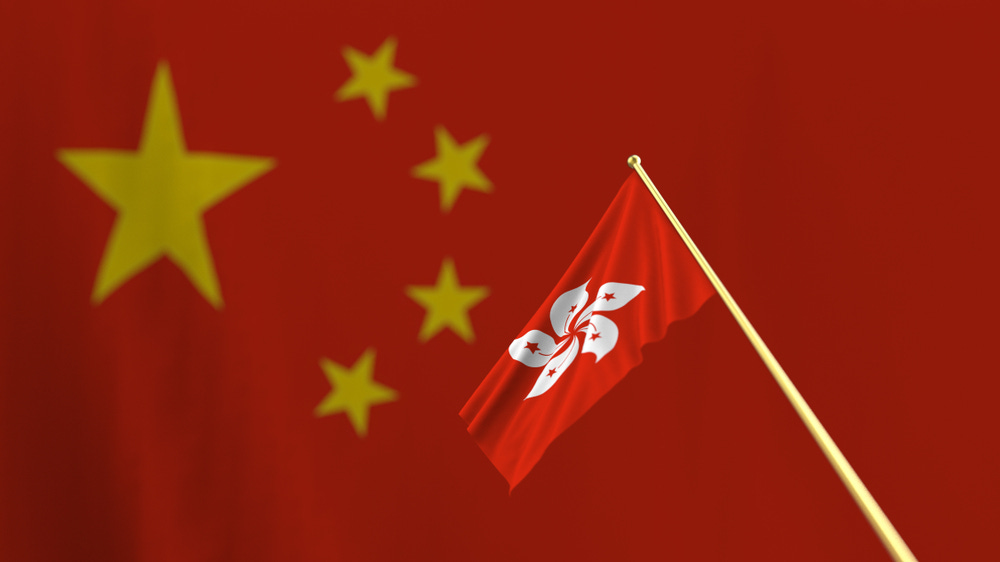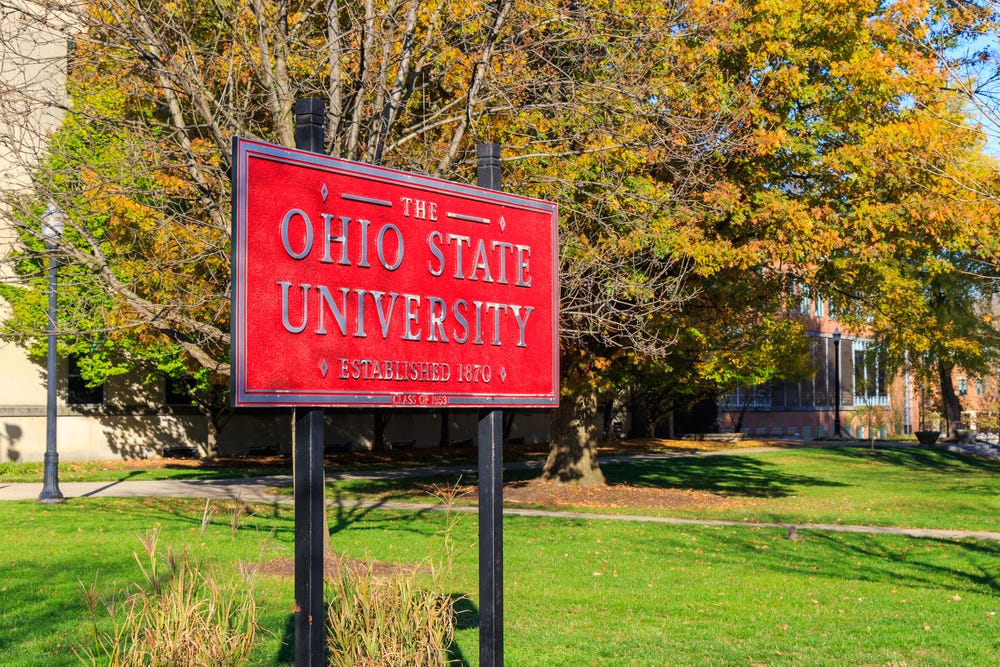E-Pluribus | December 28, 2021
China's "true democracy" claim, more on woke medicine, and how Ohio State's department to promote diversity doesn't.
A round up of the latest and best writing and musings on the rise of illiberalism in the public discourse:
Keith B. Richburg: Why is China calling itself a ‘true democracy’?
There are various impolite answers to the above question, but Keith Richburg hashes it out a little more at the Washington Post. While the CCP is clearly all in on communism as it celebrates its own 100th anniversary this year, recent elections in Hong Kong have China’s leadership trolling the world with bromides about its commitment to “democracy” in the face of all the evidence to the contrary.
But in recent weeks, China’s Communist Party leadership has been pushing a very different message through weighty pronouncements, official-sounding “white papers” and commentaries in state-controlled media. The new message is: We’re a democracy, too!
A Dec. 4 white paper issued by the ruling State Council declared, “Democracy is a common value of humanity and an ideal that has always been cherished by the Communist Party of China.”
“Whether a country is democratic depends on whether its people are truly the masters of the country; whether the people have the right to vote, and more importantly, the right to participate extensively,” the paper said. Communist China, it said, “is a true democracy that works.”
[…]
But for all the talk of the superiority of the Communist Party-led system, China’s leaders still crave the imprimatur of democracy. Democracies might be chaotic and messy — witness the Jan. 6 insurrection at the U.S. Capitol. But they also carry the unmistakable stamp of popular legitimacy.
Read it all.
John D. Sailer: A Blueprint for Woke Medicine
The medical profession is under increasing pressure to incorporate social justice concerns into education and practice. Mount Sinai’s Icahn School of Medicine is no exception and the school’s “Chats for Change” program seems an especially egregious example as John Sailer of City Journal points out.
According to the Academic Medicine article, Icahn achieved its own transformation in part through “Chats for Change,” a “series of monthly activities that spark conversations centered on racism and bias.” Chats for Change, the article notes, covered topics like “My Micro-Aggressions: Received and Delivered,” “White Fragility,” and “Roots of Racism.” Recently, the talks have become even more blatantly ideological, having been redesigned to include “braver and safer” content, such as: “What is Critical Race Theory, and what’s the big deal?”; “What are white supremacy culture characteristics intended to achieve?”; “What is the existence and significance of whiteness?”
Many of the chats make dubiously sourced assertions. For example, the “White Fragility” chat asks, “Why are so few white folks prepared to [engage in challenging conversations] and what will it take to make meaningful change?” The description of “The Invention of Whiteness” claims that “Whiteness is a socially significant structure that constricts life chances, opportunities, and privilege in American society.” Another talk asks why Critical Race Theory is “so triggering for so many white people.” Perhaps most telling is the chat on “White Supremacy Culture,” which is, according to a description, “the forbidden fruit. Take a bite and it will give you more knowledge and power than those who are hoarding that power are willing to share.” The ultimate goal of the conversation is to determine “whether there are ways we can help our colleagues and leaders embrace this concept”—of the pervasiveness of white supremacy, presumably—“without feeding too much into their fragility and right to comfort.”
Read it all here.
Alek Kundla: Ohio State’s Wasteful and Divisive Commitment to ‘Diversity, Equity, and Inclusion’
The concept of “diversity” has been batted around for decades now, yet some colleges and universities seem no closer to achieving true diversity or even recognizing what it consists of. Alek Kundla at National Review says Ohio State’s well-funded Office of Diversity and Inclusion (ODI), despite a few positive steps, hits well wide of the mark.
At a university, new and controversial ideas ought to be presented and discussed. Inviting public intellectuals to lecture on these topics is in line with the mission of a university. However, these new and controversial ideas also ought to be scrutinized and debated. Yet there seems to be little of either in ODI’s Diversity Lecture series, which features no speakers defending American society as it stands, arguing against race-based tribal politics, or challenging the theory of systemic racism. The Diversity Lecture series features a lineup that seriously lacks ideological diversity.
It is bad enough that ODI is unwilling to foster a diversity of opinions itself in the speakers it invites. Worse still is its active condemnation of heterodox viewpoints when other groups provide the diversity it refuses to. In 2018, Ohio State’s chapter of Young Americans for Freedom invited Ben Shapiro to campus for a lecture and Q&A session. As a prominent conservative coming to a majority-left college campus, Ben Shapiro saw fit, in his lecture, to clearly promote ideas in contravention of the prevailing campus orthodoxy. An office dedicated to diverse thought, opinions, and viewpoints would have been well-served to promote such an event. However, the Morrill Scholarship, an arm of the ODI, sent out a message from its Student Advisory Council the day of the event, stating that “many believe Shapiro’s views are openly misogynist, racist, and transphobic” and that “Shapiro’s rhetoric has the potential to threaten the emotional and mental safety of much of the campus community.” (Mind you, this was before Shapiro’s lecture.) Far from promoting ideological diversity, this branch of ODI pushed a rank partisan message in condemning Ben Shapiro. Worse yet is the claim that a dissenting opinion threatens emotional and mental safety. This is nothing less than an attack on the free exchange of ideas itself. Is this truly inclusion or diversity?
And when an open-carry group not affiliated with the university held an event on campus, the Morrill Scholarship Program again sent out a Student Advisory Council condemnation of the event. This group came to the Oval, openly armed, and stood by peacefully to talk to and engage with any students, faculty members, or staff who walked by. They broke no laws. In fact, to call this group’s action a demonstration seems a bit bold, as the participants displayed no signs, chanted no chants, and marched no marches. Yet MSP saw fit to “encourage students to not engage with the demonstrators.” It was another opportunity to explore a new and different viewpoint condemned by an arm of the Office of Diversity and Inclusion. Ironically, the majority of the open-carriers were African Americans: ODI sees fit only to elevate those black voices that conform to their message. So much for inclusion.
Read the whole thing.
Around Twitter
The war on metaphors is underway! (Oops…)
Some thoughts on the “common good” from Ryan Anderson, with an endorsement from Drew Holden:
David Frum, Sam Harris and Andrew Sullivan on the intersection of anti-wokeness and COVID vaccines:
And finally…










